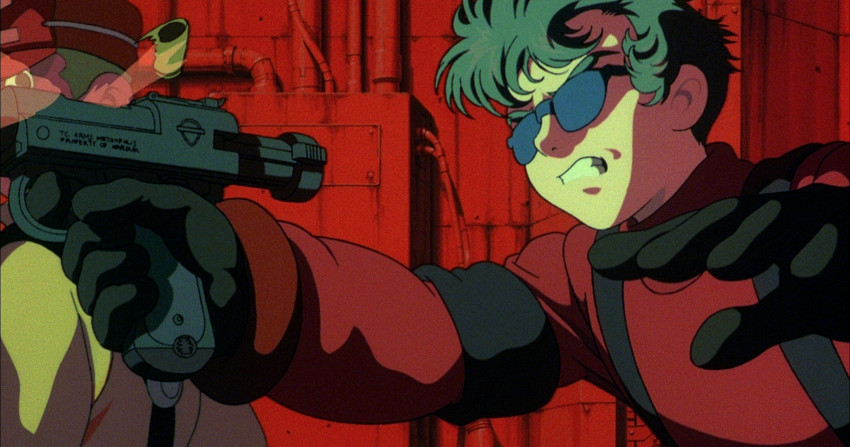Osamu Tezuka’s Metropolis
January 13, 2017 · 0 comments
By Hugh David.
 In the bustling future city of Metropolis, Japanese detective Shunsaku Ban and his nephew-assistant Kenichi arrive in search of fugitive scientist Dr Laughton. They find themselves embroiled in a family affair with wider repercussions for all across the city, for Laughton is working on a secret project for premier wealthy industrialist Duke Red that will drive his stepson Rock over the edge of his own particular madness, while human-robot friction seethes around them all.
In the bustling future city of Metropolis, Japanese detective Shunsaku Ban and his nephew-assistant Kenichi arrive in search of fugitive scientist Dr Laughton. They find themselves embroiled in a family affair with wider repercussions for all across the city, for Laughton is working on a secret project for premier wealthy industrialist Duke Red that will drive his stepson Rock over the edge of his own particular madness, while human-robot friction seethes around them all.
With this spanking new UK high-definition release, premier British archive label Eureka now have all three feature versions of Fritz Lang’s parable under their roof; no mean feat for those who understand the world of licensing. A big-budget release in 2001, this feature felt, along with writer Katsuhiro Otomo’s next feature Steamboy (2004) like the last gasp of a certain scale of Japanese animation production, grappling with extensive use of CG while holding on to traditional cell animation techniques. It’s hard to imagine a film like this being made today unless it was all-CG, or of so many industry talents being brought together in one place for one production. Director Rintaro (who had worked with Tezuka earlier in his career) and Otomo chose to adapt one of the earliest works from the God of Manga for several reasons, chief among them by their own admission being that Tezuka had passed on; when alive he had refused to let Rintaro adapt this teenage work of his, the middle part of a trilogy featuring Shunsaku and Kenichi, while Otomo’s cyberpunk approach would not, in the writer’s own view, have found favour with the late great creator. Nevertheless, pursue it they did with production house MADHOUSE, and so many were excited to be part of it that they took even the smallest part; even Go (Devilman) Nagai himself turns up in a small voice role!
What really makes this film interesting beyond the lavish visuals and technical excellence is, however, the story itself. Tezuka created his original SF manga when still a teen, based solely on reading articles about Lang’s original 1927 movie. In that sense it is not a remake, nor even a palimpsest (as Jean-Jacques Annaud claimed of his 1986 cinematic adaptation of Umberto Eco’s The Name of the Rose), but instead that even rarer beast still, the film solely “inspired by”. While one can see the elements drawn from the original, how they are envisaged and used is entirely Tezuka’s, albeit now filtered through Otomo and Rintaro. The latter prevent the mid-century elements (those who have grown up on European comics such as Tintin will recognise the sort of characters Ban and Kenichi are) from becoming twee, while adding in their own creation in the form of angry young man, military veteran and robot hater Rock, who looks and acts like something from out of, say, Cyborg 009, but is vicious in a way familiar to Akira fans.
The visuals complement these, nodding to the original Metropolis, its most well-known descendant Blade Runner, and more, while possessing a jazzy score that is both entirely appropriate and unsurprising post-Cowboy Bebop. To those who have been watching Japanese animation for a long time, it stands now as it did then as a sort of summation of the industry, yet also, given its themes, horribly relevant today, perhaps even more so than Lang’s original. The latter is why, beyond the talent on and off-screen, today’s anime fans should be giving it a go.
Osamu Tezuka’s Metropolis is out now in UK Blu-ray from Eureka.
Leave a Reply